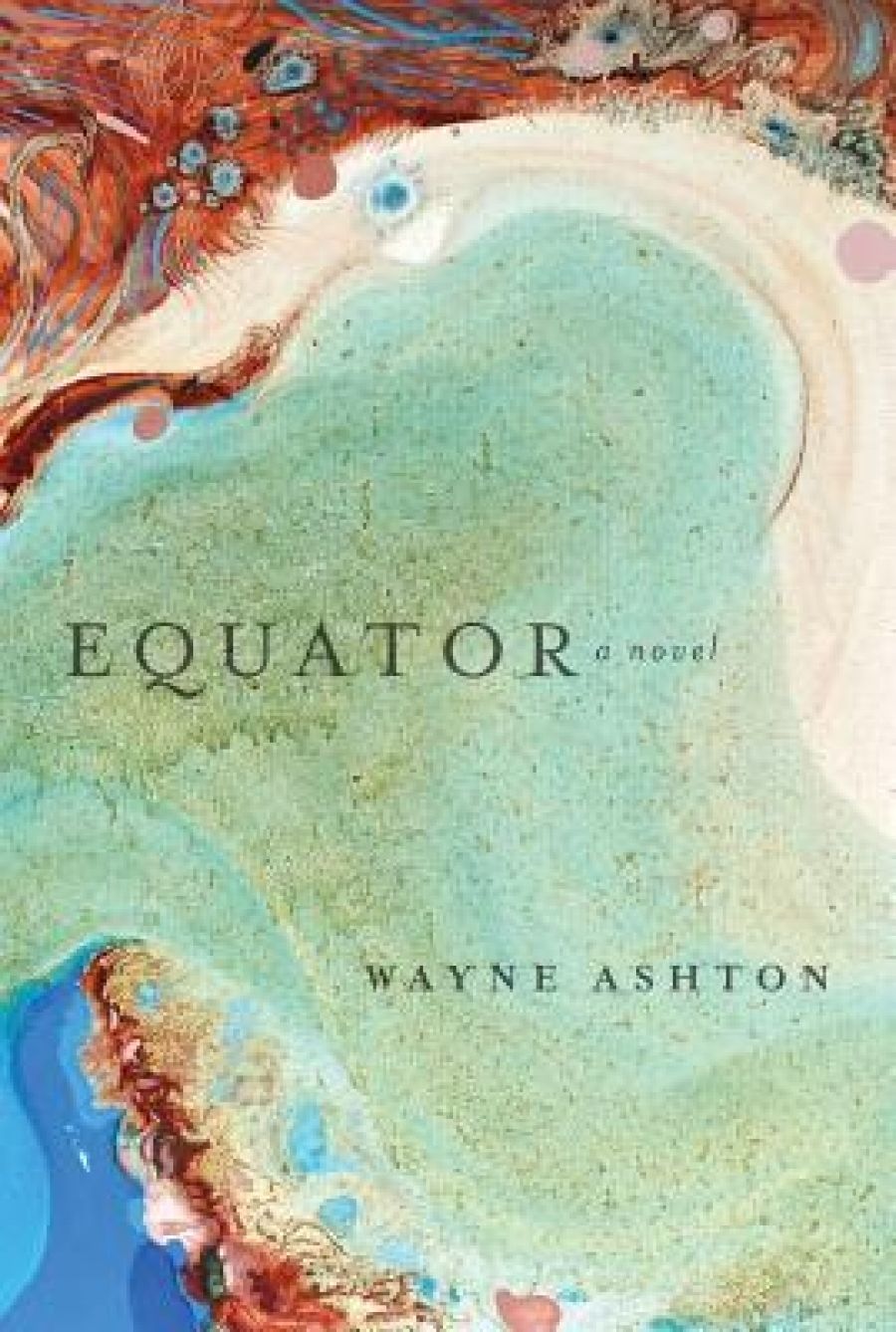
- Free Article: No
- Contents Category: Fiction
- Review Article: Yes
- Online Only: No
- Custom Highlight Text:
Equator, a rambunctious, unwieldy novel, begins in a Spanish orphanage with an elderly watchdog, Pinski. According to the narrator, who is addressing a large orange butterfly, Pinski has succumbed to the heat of the day and cannot be bothered protecting his human charges. The human characters – and therefore, by association, those who are reading his story – are called ‘the custodians of the nectar’. This rather beautiful metaphor is used many times in Equator, as are dialogues, which become incantations about good and evil.
- Book 1 Title: Equator
- Book 1 Biblio: Fremantle Press, $27.95 pb, 681 pp
- Book 1 Readings Link: booktopia.kh4ffx.net/LbqKO
Typical of this genre, there is huge energy and pace in the unravelling of the web of these tales, which are connected to the characters by blood or friendship. Four generations of an extended family are tracked. More importantly, serious themes are woven into the strands of story. Here is a clue to them: we are all the custodians of the nectar.
Wayne Ashton received critical acclaim for his début novel, Under a Tin-Grey Sari (2002). Born in Karachi to British and Pakistani parents, he grew up in Chittagong, Paris, Kuala Lumpur, Ipoh, Lagos, London and Perth, and lives now in Sydney. The characters in Equator also travel extensively, through Calcutta, India, Nigeria, Western Australia, Sydney and Spain. They move through time frames – not necessarily sequentially – from 1900, when Elli-Isabella was born, right up to 2009, when the earth is feeling the pain of the abuse and neglect it has suffered at the hands of its exploitative or simply thoughtless custodians.
‘Memory is like water’ is a refrain uttered by several characters in the novel. Our oceans store tangible evidence of our past abuses of the planet like a memory bank. Since the pivotal character, Kee, spends almost all of his life on the sea, he obviously expresses grave concerns about the pollution of Earth’s waterways. We are told, for instance, that, in 2008, four hundred oceanic dead zones were identified. The cause, hypoxia, indicates a lack of oxygen, due to fertilisers whose nitrogen and phosphorous is washed into the sea, creating giant blooms of algae. When this dies, it is eaten by bacteria which absorb the oxygen. This tragic evidence is offset by the wonderful tale of IODINE, an acronym for International Ocean Dialogue and Intelligence, Nexus Earth, a university in Broome dedicated to the urgent work of saving our oceans. IODINE is comprised of fifteen solar-operated domes which are impervious to cyclones because they offer no right angles to buffet. So the reader is offered some hope that human ingenuity is attempting, sometimes successfully, to counteract our destruction of the natural environment.
The human protagonists in Equator propel the story. Shortly after introducing them, Ashton cunningly suggests what might happen to them later in the novel, creating the desire to read on to find out if it does, though several other stories intervene before this happens. Interestingly, two of the most morally ambivalent characters are art gallery owners. (Ashton is also an artist. One of his paintings is reproduced on the cover.) Patsy is an up-market proprietor of art spaces in London, and Catherine, from Perth, introduces the theme of eugenics into the mix. Catherine, ‘of the genome generation’, in an attempt to prevent the madness of schizophrenia being perpetuated through her family line, acquires samples of friends’ and acquaintances’ DNA and sends them off for analysis. Rather than trying to breed it out, schizophrenia can be treated, maybe even eventually cured, but who, ponders Bobbo, has the will or the wit to heal the planet? Buying and selling carbon credits, he tells the butterfly, will not diminish pollution. Countries are merely creating a counterfeit currency by pretending to be doing something useful.
The reader is airlifted to Spain one minute, London, Calcutta, Broome or Sydney the next, in and out of the past via Bobbo’s stream of consciousness, when he is not arguing with the acolytes of the Hindu Buffalo demon, purveyors of evil and the lesser-quality cardboard boxes of his nightmares. These dialogues with the forces of darkness become irritating by the end of this very long novel, simply because the custodians have heard them before, many times. The exuberance of Equator, however, despite its sombre themes, is its saving grace.


Comments powered by CComment